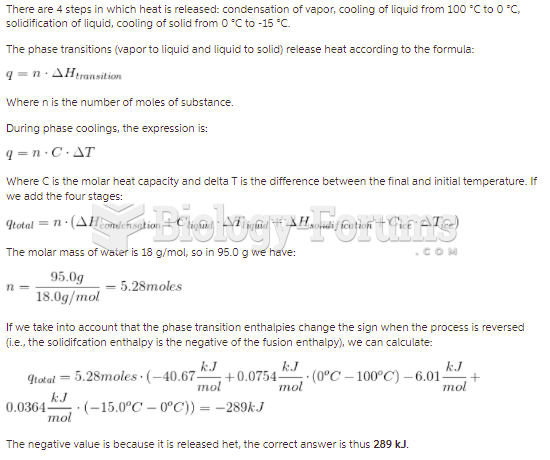|
|
|
One way to reduce acid reflux is to lose two or three pounds. Most people lose weight in the belly area first when they increase exercise, meaning that heartburn can be reduced quickly by this method.
Illness; diuretics; laxative abuse; hot weather; exercise; sweating; caffeine; alcoholic beverages; starvation diets; inadequate carbohydrate consumption; and diets high in protein, salt, or fiber can cause people to become dehydrated.
Despite claims by manufacturers, the supplement known as Ginkgo biloba was shown in a study of more than 3,000 participants to be ineffective in reducing development of dementia and Alzheimer’s disease in older people.
Multiple experimental evidences have confirmed that at the molecular level, cancer is caused by lesions in cellular DNA.
Urine turns bright yellow if larger than normal amounts of certain substances are consumed; one of these substances is asparagus.
 Three days after the Boston Marathon explosion, the FBI released this photograph that had been taken
Three days after the Boston Marathon explosion, the FBI released this photograph that had been taken
 Skin testing. Note the spot labeled H, which is the positive histamine control, and the spot labeled ...
Skin testing. Note the spot labeled H, which is the positive histamine control, and the spot labeled ...





